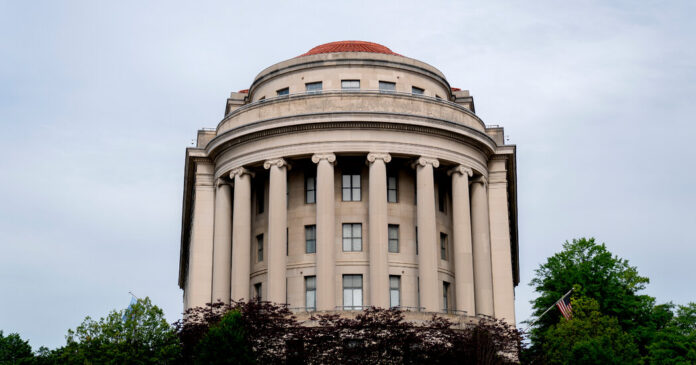A federal judge in the US state of Pennsylvania on Tuesday refused to block the Federal Trade Commission's (FTC) ban on non-compete agreements, deviating from another judge's recent finding that the agency's actions were on shaky legal ground.
The decision removes an obstacle to the FTC's plan to ban virtually all non-compete agreements, which prohibit workers from moving jobs within an industry and affect about one in five American workers. The rule is set to take effect on September 4.
Several business groups filed suit to block the ban as soon as the FTC voted in favor of it in April, arguing it would limit their ability to protect trade secrets and confidential information. ATS Tree Services, a tree-trimming company, filed suit in the U.S. District Court for the Eastern District of Pennsylvania. It argued it used non-compete agreements to “provide its employees with necessary and valuable specialized training while minimizing the risk that employees would leave the company and immediately use that specialized training and confidential information from ATS to benefit a competitor.”
But on Tuesday, Judge Kelley Brisbon Hodge ruled that ATS had not shown it would suffer irreparable harm from the arrangement. She denied the company's request for a preliminary injunction and said the lawsuit was unlikely to succeed on the merits.
Judge Hodge's decision “fully affirms” the FTC's authority to prohibit noncompete clauses “that harm competition by restricting workers' freedom and mobility while slowing economic growth,” Douglas Farrar, a spokesman for the commission, said in a statement.
Josh Robbins, an ATS attorney with the Pacific Legal Foundation, a libertarian legal group, said the firm was disappointed with the court's decision and would “continue to fight the FTC's power struggle.” Robbins declined to say whether the firm plans to appeal.
In any case, employers are in limbo as they await a ruling from Judge Ada Brown of the U.S. District Court for the Northern District of Texas, who this month issued a preliminary injunction sought by several plaintiffs, including the U.S. Chamber of Commerce.
While that ruling was limited to the plaintiffs in the Texas case, Judge Brown said the FTC lacked “substantive legislative authority” over unfair competition practices and that the plaintiffs were “likely to succeed on the merits” of their lawsuit.
Judge Brown said she expects to make a final decision by the end of August.
The lawsuits blocking the FTC rule alleged that it was issued without constitutional and statutory authority. The three Democrats on the five-member commission who voted to adopt the rule contend that it is consistent with the authority granted by the FTC Act of 1914, which created the agency.
Employers may face a long period of legal limbo even beyond the day the regulation comes into force, as lawsuits are still pending in the courts, says Jeremy Merkelson, a partner at the law firm Davis Wright Tremaine.
“There is definitely tension between what the two districts have done, and I expect both cases will be appealed in the appellate courts,” Merkelson said. “The Supreme Court will likely have to address this issue because of its importance.”



















